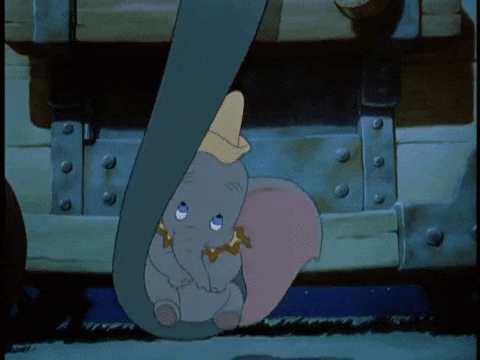Just Me Being Me: “You Need To Talk to Your Mom.”
My therapist said this to me again and again, even though she eventually “graduated” me from her care despite not following her advice. Why do I find it so hard to talk to my mother?
Just Me Being Me is literally just me being me, living my life outside my comfort zone when it happens as it happens. Since I’m a dedicated introvert, this doesn’t happen much, which makes it doubly interesting when it does.
“You need to talk to your mom.” My therapist said this to me again and again, even though she eventually “graduated” me from her care despite not following her advice. Why do I find it so hard to talk to my mother? Why do I resist even the thought of talking to her?
It’s not that I’m not close to her.
I miss my mother a lot—I didn’t think I would feel the ache as badly as I do now. But when we moved to Nevada, things I took for granted—Sunday lunches at my childhood home, quick calls during workdays to talk about people and plans, occasional quiet time together—suddenly stopped happening. I didn’t think I was a “family” person, but I was. I miss my childhood home and my family, but mostly, I miss my mother. But does missing her mean that we’re close?
I’ve avoided this topic for so long that I can’t even draw a map to the point. I always had a compass, so I never needed to draw a map. My father taught me how to love my mother. He loved her so much, but now he’s gone. And he even left instructions: “Take care of your mom.” I’m trying, Dad.
I learned a lot about myself in healing.
I had a stroke a few years ago, and recovering from that jumpstarted a healing process within me that went beyond physical health. I finally went to therapy after years and years of managing undiagnosed mental health issues by myself. But as I started healing and growing beyond my previous self, I noticed that many paths to my self-improvement led back to and came from my mom. I learned about emotional distance, emotional neglect, and how love and care can be present but still not enough for a child to feel entirely accepted.
I know my mother loves me. But I hate always having to squint and look at it from an angle to be able to see it. I know she finds me beautiful, but I also know how careless she was with her words when talking about my weight. I know she cares about me, but I also know how she prioritizes her core family over her children and husband. I know she wants to give me the best of everything, but I also know how she would prefer it if I wanted less.
Not that my dad wasn’t complicit in things that contributed to my particular brand of childhood trauma. But, I guess, because I was determined to leave nothing unsaid between us when we found out he had cancer, we ironed things out during our last Christmas together. I don’t want to wait until the last moment to have that same conversation with my mom. But I remember how hurt my dad was by words that could barely leave my mouth, and I don’t want to hurt my mom unless it’s totally necessary.
I don’t know my mom as well as I should—
and that’s why I’m always careful around her. She talks about her core family a lot, but never about herself. I know I got my love of music from her and my dad, but I don’t know how she feels about not playing the drums or the bandurria anymore. I don’t even know if she ever composed any songs of her own. I know she likes cooking for other people, but I don’t know if she likes cooking. My dad told me once that he ate everything my mom made in the kitchen in their early years together because she was so happy to make food for him, but they weren’t always good.
And there it is. This is the point: I don’t know my mom as well as I should, so how can we be close? I don’t like talking to her because now that there’s physical distance between us, no food to distract us, and no other people on the line, it’s so much more evident that we’re not close. And it’s also so much more apparent why I don’t know her as well as I should. I hear it when we’re talking—the wheels turning in her head, her quiet but quick deflections when I ask about her specifically, her surprise when she realizes I want to know about her. And I hear myself mirroring her communication habits, despite my months of therapy and years of healing.
What do I want to tell my mom?
I want to tell my mom that I know we don’t have a lot of time left, and that I’m sorry I’ve been distant. I want her to know that I’ve been waiting for an apology from her for a long time, but now it seems silly to want one when I feel like I should be apologizing for lost time. I know she loves me and that she and all her efforts are enough. I want to know who she is beyond being my mother, beyond what she can do for me. I want to know the little girl who came home on her bike with skinned knees, the tween who decided to learn how to play the bandurria to perform with a rondalla onstage, the teenager who formed a band with her friends and played the drums standing up, the young lady who got married in a miniskirt.
I want to make new memories with her and create a stronger relationship based on mutual understanding and acceptance. I want to learn from her experiences, hear her stories, and love her in a way that shows her she is worthy of love, care, and attention—just as she is, not just because of what she can do.
You know what’s funny? These are all the things I practice telling myself daily. I’m enough. I’m not too much. I’m deserving of love and kindness.
“You need to talk to your mom.”
I know! But first, I need to let go of everything that no longer matters—how much it hurt me when she didn’t know how to deal with my weight, how unloved I felt when she listened to her core family and not me, how much she hurt my dad. Because it’s no longer on her that these things still get to me and affect my mental health. I chose to file away all these memories and keep them in a dusty corner in my mind.
I’m trying my best to be at a point where I can talk to my mom. I’m communicating better with my partner, friends, and co-workers. I meditate daily and work on unlearning harmful habits I learned from my mom: people-pleasing, ignoring anger, and not living with an abundance mindset. I’m also working on forgiving myself for my pace.
But mostly, I’m trying to remember that this is not about me following Dad’s instructions. It’s about getting to know who my mom is before it’s too late.
Photo by dylan nolte on Unsplash
If you’ve enjoyed reading this or something else I’ve written, please consider buying me a coffee. ☕ Thank you!








letting go of how she hurt you doesn’t mean forgetting. it means freeing yourself from it, so you can choose what you carry forward.
what you’re doing, it’s not easy. it’s raw. it’s messy. but you’re making space for love in a way that doesn’t ignore the hurt. beautiful!!